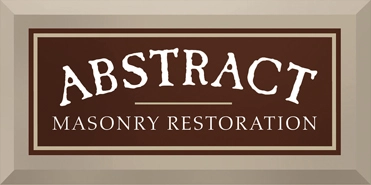Do You Have a Restoration Project We Can Help With?
Question: What causes masonry to deteriorate?
Answer: As indicated above, masonry is subject to a wide variety of complex forces. Among
these are:
- Expansion and contraction due to freeze/thaw cycles.
- Efflorescence (expansion of soluble salts).
- Thermal expansion and contraction.
- Expansion of rusting metal contiguous to the masonry units.
- Moisture trapped behind painted masonry unable to escape.
- Masonry “sealed” with an inappropriate sealer.
- Effects of acid rain.
- Failure to properly repair mortar joints (repointing) soon after initial mortar failure.
- Using an incorrectly formulated repair mortar for repointing.
- Failure to repoint.
- Incompatible materials with differing physical characteristics contiguous to each other.
- Imperfections in the masonry units resulting from the fabrication or manufacturing
process. - Incorrectly installed masonry units.
- Poor detailing, design, and specifications.
- Wind erosion.
- Biological growth (plant life).
- Rising damp (the vertical migration of water through masonry by way of capillary action).
- Splashback (water falling from the roofline, hitting the ground, and splashing up on the
masonry). - Being hit by vehicles, lawnmowers, and other such things.
- Settling.
- Birds and other animals.
- Seismic activity.
- Several of these forces often work simultaneously on the masonry. The best way to
identify the causes of deterioration is to call on the expertise of an experienced and
trained professional who has a keen understanding of masonry materials science. Only
after the cause has been determined can the most appropriate and enduring intervention
method be recommended.
Question: Why should I repair my deteriorated masonry?
Answer: Deteriorated masonry can quickly lead to more serious structural problems. Once
masonry begins to deteriorate, the rate of deterioration grows exponentially. Repairing masonry
as soon as possible costs much less in the long run and protects you from much greater
damage and expense in the future. At the end of the day, the masonry will look better repaired
than it does in a state of deterioration.
Question: How can my deteriorated masonry be repaired?
Answer: The cause and extent of the deterioration, as well as the environmental conditions the
masonry is exposed to, determine the best way to repair masonry. Among the repair options
are:
- Composite Patching – Replacing the areas of deterioration with a specially formulated
repair mortar that closely matches the color, texture, and physical characteristics of the
host masonry. - Dutchman Patches – Replacing small areas of deterioration with new masonry that is
carefully shaped to precisely fit the void created as a result of removing the deteriorated
portion of the masonry. Dutchman patches are usually done on stone rather than brick or
terra-cotta. - Remove and Replace – Removing the entire masonry unit, then replacing it with new
masonry. - New Veneer – Removing the entire exposed face of the masonry to a predetermined
depth, then replacing it with new masonry. - Retooling – Reshaping the masonry unit where it sits without removing any part of it.
- Consolidation – Carefully removing the badly deteriorated masonry material, then
applying various specialty treatments that strengthen and consolidate the remaining
masonry unit. The masonry is not restored, but rather preserved in its existing condition.
Choosing the best method to repair deteriorated masonry is a critical decision that should be
done by a trained, experienced, and competent professional. This will give you peace of mind
that the repaired masonry will not only look good, but it will also endure the test of time.
Question: How can I prevent my masonry from deteriorating in the future?
Answer: Have an experienced, trained, and professional craftsman determine the cause of the
deterioration, then make the appropriate intervention using compatible materials. Since several
of the above causes of deterioration originate from water coming in contact with the masonry,
locate and stop the water contact.
If appropriate, consider having specialty masonry strengthening and/or consolidation treatments
applied to masonry that is prone to deteriorate. Additionally, consider having a penetrating and
breathable water repellent applied to your masonry.
Call Today for Questions
The thoroughly trained and seasoned experts at Abstract Masonry Restoration are skilled,
equipped, and ready to help you with your deteriorated masonry. Contact us for professional
assistance with any deteriorated historic masonry you may have.


